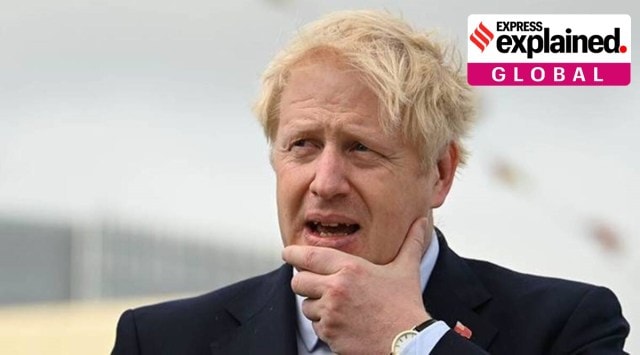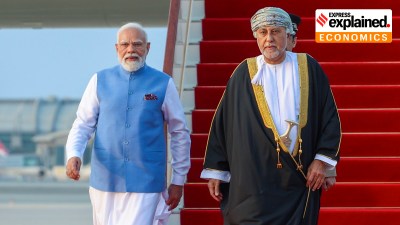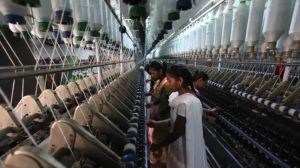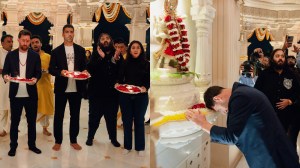Explained: What the UK police inquiry into the Downing Street parties has found so far
Last month, more than 50 fines were handed out in the 'partygate' case, including to UK prime minister Boris Johnson, his wife, and Chancellor Rishi Sunak.
 UK Prime Minister Boris Johnson. (FIle Photo)
UK Prime Minister Boris Johnson. (FIle Photo)The London Metropolitan Police has issued at least 50 new fines for breaches of COVID-19 rules in Downing Street and other government buildings, in what is popularly referred to as the “partygate scandal”. The identities of those who have been served the latest batch of fines is not known yet.
In late March, the police handed out 20 fixed penalty notices (FPNs)–FPNs are the equivalent of a minor speeding offence–to those who violated COVID-19 protocol between May 2020 and April 2021. Last month, more than 50 FPNs were handed out, including to UK prime minister Boris Johnson, his wife, and Chancellor Rishi Sunak.
What is the Partygate Scandal?
The row started when a video showing Johnson’s senior aides joking about breaking lockdown rules to attend a Christmas party was leaked online in December 2021.
The leaked video inspired widespread criticism from the public and the opposition party, who were angry at the Conservative government for flouting Covid-19 protocols at a time the restrictions had prevented many from celebrating Christmas.
Johnson has repeatedly denied that any rules were broken in Downing Street.
Who is investigating the parties?
The much-awaited report into the alleged “partygate” scandal by civil servant Sue Gray was released in February. Gray and her team were investigating allegations surrounding more than a dozen government parties held during the pandemic that likely broke Covid-related rules.
The central purpose of these investigations was “…to establish a general understanding of the nature of the gatherings including: attendance, the setting and the purpose, with reference to adherence to the guidance in place at the time.”
 Gray’s team carried out interviews of over 70 individuals and examined relevant documentary and digital information. These included emails, WhatsApp messages, text messages, photographs and building entry and exit logs.
Gray’s team carried out interviews of over 70 individuals and examined relevant documentary and digital information. These included emails, WhatsApp messages, text messages, photographs and building entry and exit logs.
The report noted, “At times it seems there was too little thought given to what was happening across the country in considering the appropriateness of some of these gatherings, the risks they presented to public health and how they might appear to the public. There were failures of leadership and judgment by different parts of No 10 and the Cabinet Office at different times. Some of the events should not have been allowed to take place.”
Concluding her 12-page report, Gray said, “… a number of these gatherings should not have been allowed to take place or to develop in the way that they did. There is significant learning to be drawn from these events which must be addressed immediately across Government.”
How did the police get involved in this?
The police had earlier said that they will not investigate the allegations since it is their policy to not look into retrospective breaches of Covid-19 protocols.
But after some information was provided to them by the Cabinet Office investigation team, they set out to carry out inquiries for 12 parties. Four gatherings were left out because they were thought to be outside the scope of their investigations, as they did not reach the threshold for criminal investigation.
Newsletter | Click to get the day’s best explainers in your inbox
- 01
- 02
- 03
- 04
- 05






































